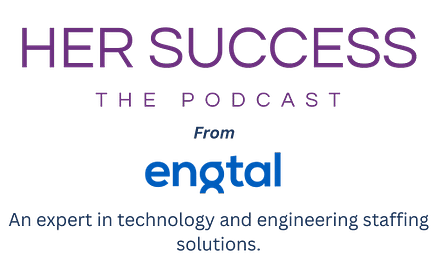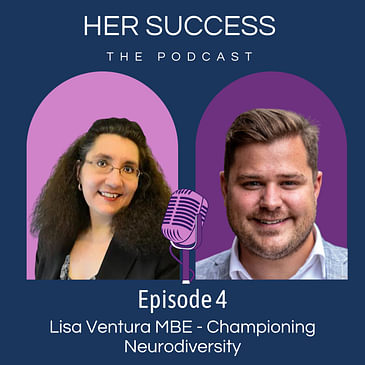Lisa Ventura was recently awarded an MBE for her services in Cyber Security, spearheading diversity and inclusion.
It's undoubtedly one of the most exciting career journeys we've heard of in the tech space, following an incredibly successful career in the entertainment industry. Lisa worked on a widely popular TV show that became a global hit, 'Who Wants to Be a Millionaire.'
Lisa's career in cybersecurity is fascinating; she founded the first-ever dedicated UK Cyber Security Association (now Cyber Security Unity) to unite the cybersecurity industry worldwide to combat the growing cyber threat.
In 2023, King Charles III personally awarded Lisa an MBE for her dedication, commitment, and service to diversity and inclusion in the Cyber industry.
Lisa talks openly about this humbling moment and her dedication to raising awareness and understanding about neurodiversity; as a neurodiverse woman, she is passionate about supporting neurodiverse careers in the industry.
This episode explores:
- Lisa’s background and career journey into cyber security and success in the sector
- The potential and risks of Artificial Intelligence (AI) in cybersecurity.
- The importance of cybersecurity awareness for businesses and individuals.
- Neurodiversity and Lisa's personal experience with autism
- Imposter syndrome among successful people, including those who are neurodivergent.
About Lisa Ventura MBE
Lisa Ventura MBE is a renowned cyber security awareness and culture specialist, keynote speaker, and author. She is the Founder of Cyber Security Unity, a global community membership organization dedicated to uniting individuals and companies actively engaged in cyber security to combat the escalating cyber threats.
As a consultant, Lisa collaborates closely with cyber security leadership teams, enhancing their collaboration and providing training in cyber security awareness and culture. Lisa's contributions extend beyond consultancy; she actively participates on several boards and councils, including Think Digital Partners as their Cyber Security Advisor, and the Advisory Board for the World-Wide Women in Cyber Security (w3-cs) Association amongst others. Lisa’s expertise covers various domains, including the human elements of cyber security, cyber psychology, AI, and cyber security, and supporting DE&I in the cyber security industry. Additionally, Lisa focuses on addressing topics such as mental health, impostor syndrome, and neurodiversity.
About Engtal
HerSuccess is brought to you by Engtal. Engtal is a US-based staffing agency specializing in engineering and technology, with a commitment to diversity, equity, and inclusion. Part of our mission is to balance the diversity scales in our industry.
We are so tied to this mission that we donate a thousand dollars from every underrepresented placement made to our nonprofit, Diversify the Future. We then use that money to fund scholarships for underrepresented groups to help them obtain a STEM degree. If you are an engineer or a tech professional looking for a new position, or you are hiring talent in this space and want a recruitment partner, please get in touch.
engtal.com | LinkedIn | Instagram | Youtube




